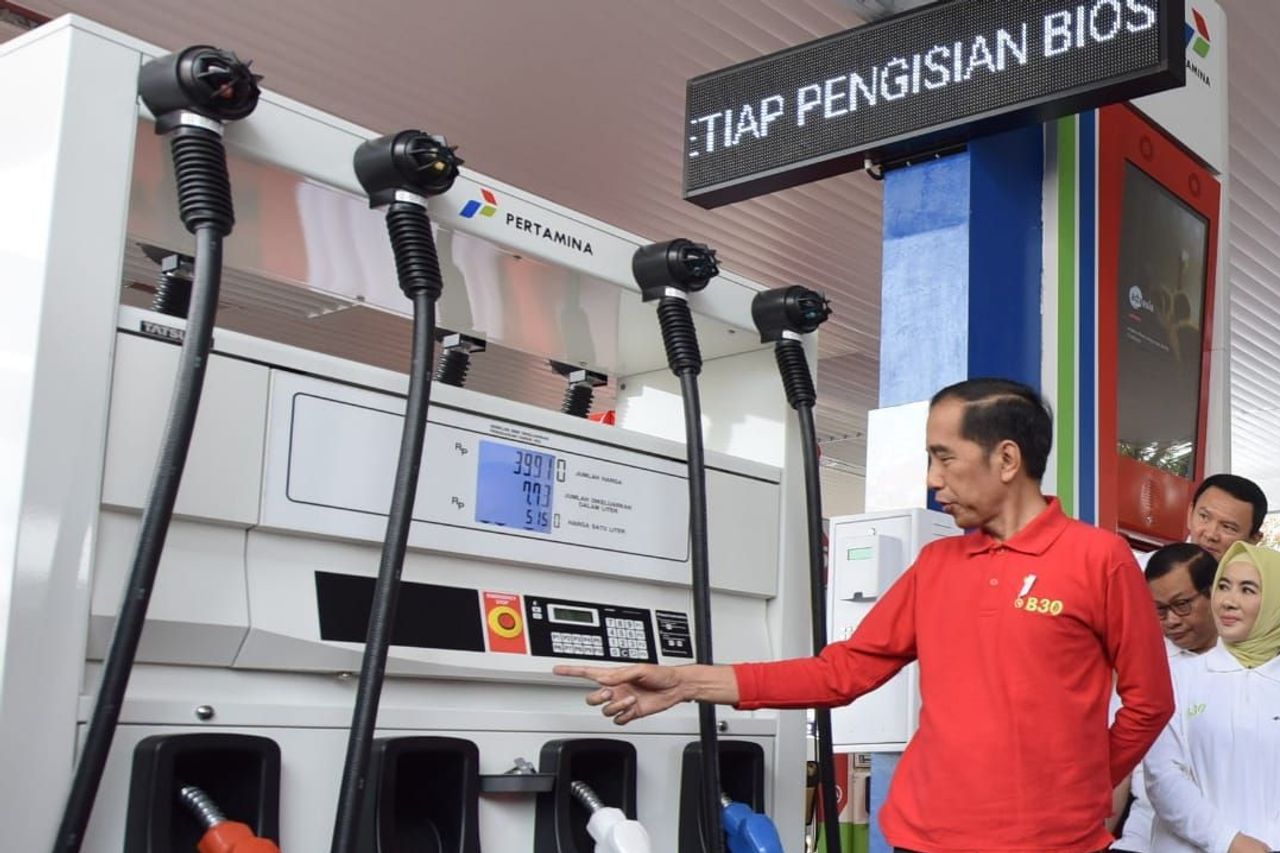The Ministry Of Energy And Mineral Resources Guarantees That B30 Will Not Affect The Quality Of Vehicle Engines

JAKARTA - The Ministry of Energy and Mineral Resources (ESDM) guarantees that the use of biodiesel with a vegetable mixture of 30 percent or B30 will not cause losses and affect the quality of vehicle engines.
The content of vegetable elements or fatty acid methyl esther from palm oil in B30 fuel has passed a series of tests and shows good results.
"The implementation of the mandatory biodiesel program, including B30, is carried out with careful and systematic planning and through a series of comprehensive and constructive tests to ensure that the implementation is on target, does not cause loss and damage to vehicle engines and actually plays a role in improving environmental quality," said the Director of Bioenergy, Directorate General of Energy. ESDM Ministry of Energy's New Renewable and Energy Conservation (EBTKE) Andriah Feby Misna in her statement, Thursday, January 16.
In terms of fuel quality, B30 is also better than B20. Before being implemented, said Feby, several preparations have been made, including revising SNI for biodiesel, conducting B30 road / function tests, ensuring the readiness of biodiesel producers, ensuring proper handling and storage system methods, ensuring infrastructure readiness, and conducting socialization to ensure acceptance of all related parties.
B30 testing, he continued, had also been carried out at the Dieng Plateau, Central Java to see the ability of the fuel to adapt to colder air conditions. As a result, the vehicle's engine start capability runs smoothly after soaking the fuel in a separate funnel for 21 days.
After passing the start ability test, the B30 fueled vehicle continues the road test up to a distance of 640 km per day on various road tracks. Especially for straight tracks, the stability of the car is maintained with a maximum speed of 100 kilometers per hour.
"B30 is basically ready for use by ordinary diesel engines with little or no adjustment. Adjustments are needed if the biodiesel storage or container is made of biodiesel sensitive materials such as seals, gaskets, and adhesives especially older cars and those made from natural rubber and nitrile rubber, "he added.
Success Factors for Using B30
Feby explained, the success of using B30 depends on three factors, namely the quality of the fuel (biodiesel and diesel), the handling of the fuel and also the compatibility of the material with these fuels.
Damage to the injectors can result from a non-compliance of one or more of these three factors. As for the buildup in the engine filter, it can be said that this case only applies to old units or units that have been using B0 for a long time, if from the beginning you have used B20 there is usually no problem and can be continued with the use of B30.
"For vehicles that have already used the B20, there is no problem," he said.
In addition, increasing the mixing of biodiesel from B20 to B30 basically will not cause a pile of sediment because there has been an increase in specifications from B20 (20 parameters) to B30 (24 parameters), where the levels of monoglycerides and water have been reduced, "he said.
The parameters that are also satisfactory from the test results are the exhaust emission of CO in the B30 vehicle which is lower in the range of 0.1-0.2 g / km against the threshold (1.5 g / km) and THC emissions have decreased by 46 percent and an increase of up to 46 percent. with 9.9 percent.
The use of B20 in 2018 of 3.75 million kiloliters has been able to save foreign exchange of 1.89 billion US dollars or Rp26.27 trillion, create jobs for 482,000 people, and reduce greenhouse gas (GHG) emissions and improve environmental quality by 5, 61 million tonnes of CO2.
The utilization of B20 in 2019 amounting to 6.36 million kiloliters has saved foreign exchange of US $ 2.92 billion or equivalent to Rp.42.05 trillion, created jobs for 801,000 people, and reduced GHG emissions and improved environmental quality by 9.51 million tons of CO2.
The implementation of B30 is expected to increase the absorption of CPO by 2.6 million tons or equivalent to Rp9.16 trillion with the absorption of biodiesel of 9.59 million kiloliters which will have an impact on foreign exchange savings of US $ 4.4 billion or equivalent to Rp.63.40 trillion. creating jobs for 1.2 million people and reducing GHG emissions and improving environmental quality by 14.34 million tons of CO2.
"Through the right commitment and understanding from all parties, the implementation of B30 can run smoothly with the aim of fulfilling the government's commitment to reduce GHG emissions by 29 percent from BAU by 2030, increase energy security and independence, stabilize CPO prices, increase added value through downstreaming. the palm oil industry, meeting the target of 23 percent of the contribution of EBT in the total energy mix by 2025, reducing fuel consumption and imports, reducing GHG emissions, and improving the trade balance deficit, "said Feby.
